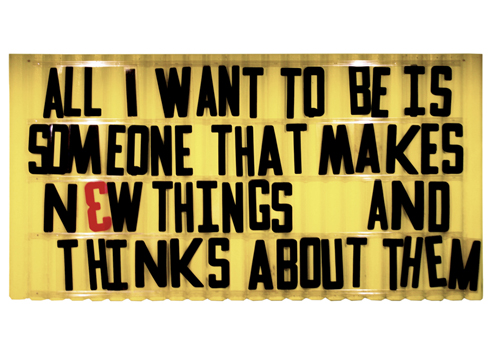If You’re a Gadget and You Know It Clap Your Hands
from among the R-U-IN?S:
When developers of digital technologies design a program that requires you to interact with a computer as if it were a person, they ask you to accept in some corner of your brain that you might also be conceived of as a program. When they design an internet service that is edited by a vast anonymous crowd, they are suggesting that a random crowd of humans is an organism with a legitimate point of view.
Lanier, Jaron. You are not a gadget: a manifesto. Knopf, 2010. 7. eBook.
Well, exactly. Instead of only “seek[ing]to inspire the phenomenon of individual intelligence,” as Lanier argues, the data-driven, aggregated Web should keep doing what it’s doing: giving us an antidote to the notion of a fixed and individual identity that’s been so prevalent in the West for so long. By pointing out that crowds can be wise, that machines can communicate, and that decisions can emerge in the absence of an executive, the Web doesn’t diminish our identity; rather, it points out that that identity was never actually there to begin with, and that the points of view we hold so dear aren’t the product of an individual, but the product of an ever-shifting aggregate of 100+ billion neurons, each continually interacting with between 100 and 10,000 other neurons in ways both patterned and random. The point is, there are legitimate points of view outside the Enlightenment notion of the individual human—in fact, I would argue that the notion of self as aggregate, permeable, interconnected, and inessential is actually more humanistic than the Self-ish view, in that it is more likely to keep us from destroying ourselves and the planet we live on.
Manifest that, Mother hubbard.






